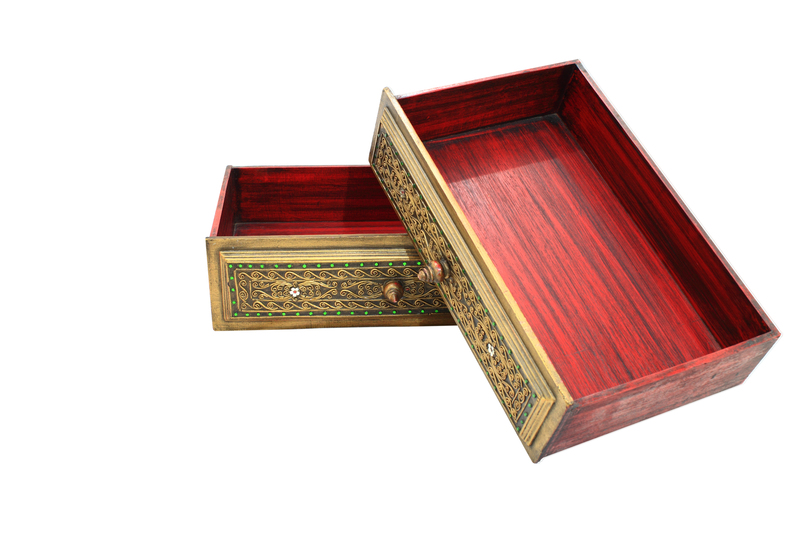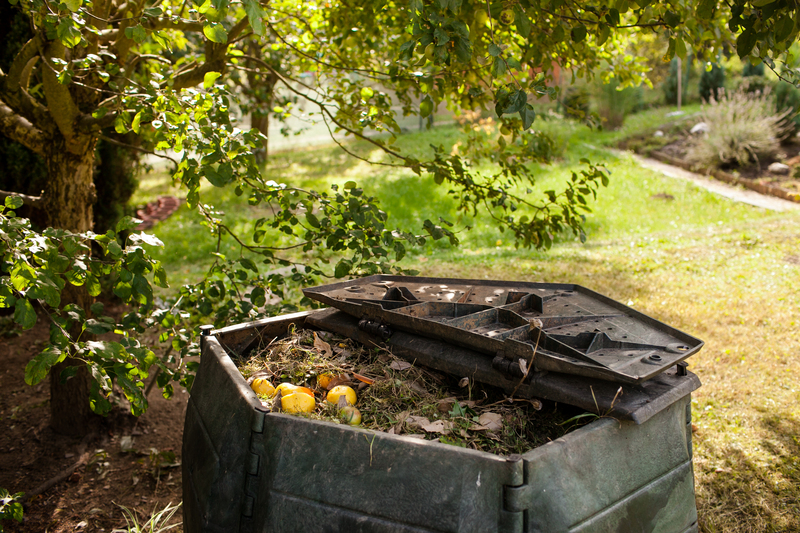Smart Ways to Save Money on Bulky Waste Item Disposal
When it comes to home improvement, decluttering, or moving, bulky waste item disposal is often a challenging and costly task. Whether you're dealing with old furniture, appliances, mattresses, or large electronics, these oversized items require special consideration for proper and budget-friendly removal. Fortunately, by exploring a variety of smart solutions, you can reduce your expenses and potentially even benefit your local community or the environment in the process.
Understanding Bulky Waste and Its Challenges
Bulky waste refers to large items that cannot fit into regular rubbish bins or bags. Examples include:
- Couches, sofas, and armchairs
- Large household appliances (fridges, washing machines)
- Mattresses and bed frames
- Garden waste (large branches, sheds)
- Exercise equipment
- Old electronics, TVs, and computers
Disposing of these items responsibly and affordably requires planning. Many local councils provide collection services, but these can come at a cost or with limitations. Unethical disposal options--like illegal fly-tipping--can result in heavy fines and environmental harm.

1. Utilize Local Authority Bulky Item Collection Services
Most municipalities offer bulky waste collection services, which are generally more affordable than hiring private companies. Before scheduling, follow these cost-saving tips:
- Check for free collection days: Some councils offer annual or semi-annual free pick-up events.
- Book in advance: Early bookings may attract discounted rates.
- Group items: Maximize a single collection by coordinating with neighbors or disposing of multiple items at once.
- Sort items: Ensure only bulky, allowed items are put out to prevent surcharge fees.
Advantages of Local Authority Collections
- Lower costs compared to private businesses
- Environmentally responsible: ensures correct recycling or disposal
- Legal and compliant with local regulations
2. Donate Usable Items to Charity or Non-profits
An excellent way to save money--and make a positive impact--is by donating unwanted bulky items that are still in good functional condition. Many organizations offer free bulky item pick-up or accept drop-offs.
- Furniture banks: Accept beds, sofas, and tables to help low-income families.
- Charity shops: Some have the capacity to take and resell larger donations.
- Local shelters: May need robust furniture or appliances for housing residents.
- Online donation platforms: Use websites or apps to connect with people in need.
Why Donation Is a Smart Disposal Option
- Reduces landfill waste
- Beneficial to the community
- May provide tax benefits (for qualifying donations)
- Often completely free
3. Sell Items Through Online Marketplaces
Why pay for bulky waste item disposal at all, when you might actually earn money by selling reusable goods?
- Classified ad sites: Such as Craigslist, Gumtree, or Facebook Marketplace, are ideal for large items.
- "Free" listings: If resale is tough, try giving items away for free to expedite removal.
- Community boards: Your neighborhood or local social media groups can connect you with interested buyers or takers.
- Specialized apps: Apps like Letgo (now part of OfferUp) and Nextdoor make local transactions simple.
Tips for Fast and Cost-Effective Sales
- Post clear photos and measurements
- Describe any wear or damage honestly
- Set the price low or 'free to collect' for quick removal
- Arrange safe pick-up logistics
4. Take Bulky Waste Items to Recycling Centers
If professional removal isn't needed, self-hauling bulky items to a recycling center is one of the cheapest (sometimes free) avenues. Most cities have household waste recycling centers (HWRCs) for large items.
- Know what's accepted: Check your local center's guidelines in advance.
- Separate recyclable from non-recyclable components: Disassemble items when feasible to reduce fees.
- Borrow or rent a truck: Pool resources with others for transport.
- Ask about "reuse shops": Some sites run shops for upcycling donated items.
Benefits of Recycling Centers for Bulky Waste
- Lower costs (usually only commercial loads are charged)
- Eco-friendly: maximizes recycling and material recovery
- Promotes sustainability
5. Arrange A Community or Neighborhood Bulk Waste Day
Pooling resources for a neighborhood collection event can spread costs among residents, enabling discounted rates for everyone and more convenient disposal.
- Contact waste haulers: Many companies offer group discounts for joint bulk pick-ups.
- Coordinate with HOAs or resident associations: They can organize and negotiate on your behalf.
- Promote rehoming: Invite residents to browse items before disposal for possible reuse or upcycling.
- Arrange for responsible recycling: Partner with local recycling firms during the event.
6. DIY Dismantling to Lower Disposal Fees
Waste removal companies often calculate charges by volume or weight. By dismantling bulky waste items yourself and breaking them down, you can significantly reduce what you pay.
- Disassemble furniture: Remove legs, arms, and cushions from sofas or chairs.
- Flatten boxes: Break down large packaging to save space.
- Remove non-recyclable parts: Metal scrap dealers often accept separated metallic frames and parts for free or cash.
- Bag up loose components: Place small parts in bags for easier stacking.
Advantages of DIY Dismantling
- Lowered disposal or transport costs
- Easier to fit items in personal vehicles for self-dropping
- Possibility to recycle or sell separated materials
7. Compare Quotes from Licensed Private Waste Removal Services
If your council doesn't offer service or your timeline is tight, compare several licensed bulky waste removal companies. Obtaining multiple quotes helps you find the best deal.
- Request itemized estimates: Understand what services are included (labor, disposal, recycling, etc.).
- Check credentials: Ensure providers have proper licensing for bulk item disposal.
- Review reviews: Prioritize companies with a track record of reliable, on-time service and fair pricing.
- Ask about recycling: Confirm their environmental practices align with your values.
How to Maximize Savings with Private Services
- Schedule off-peak (e.g., midweek or winter) for lower rates
- Share a service with neighbors or friends
- Book online: some providers offer discounts for online reservations
8. Explore Manufacturer or Retailer Take-Back Schemes
Many appliance and furniture retailers now offer take-back programs for bulky goods purchased from them. When you buy a new mattress, fridge, or sofa, ask if they'll remove your old one as part of the deal.
- Promotional disposal: Retailers may offer free removal as a sales incentive.
- Eco-friendly disposal: Take-back schemes often guarantee responsible recycling.
- Manufacturer recycling: Big brands participate in extended producer responsibility (EPR) programs.
Tips for Accessing Take-Back Schemes
- Check terms before purchasing
- Request disposal documentation
- Schedule removal when delivery arrives
9. Avoid Fines and Illegal Dumping: It's Costlier in the End
Attempting to dispose of bulky waste items irresponsibly--like leaving them on curbsides without scheduling pick-up--may result in hefty municipal fines, often far exceeding the cost of proper disposal. Illegal dumping harms the environment and damages community aesthetics. The smart way to save money is to always use approved, legal disposal methods.
10. Upcycle or Repurpose Bulky Waste for Creative Solutions
If you have a knack for DIY, consider turning old items into something new! Upcycling is a great way to extend the life of bulky waste, save money, and personalize your space.
- Pallets: Can be converted into outdoor furniture, planters, or compost bins.
- Mattress springs: Use as garden trellises or rustic wall art.
- Wooden doors: Turn into headboards, tables, or shelving units.
- Old appliances: Get creative with garden planters or workshop storage.
Key Tips for Affordable Bulky Waste Disposal
- Plan in advance to avoid emergency, high-cost options.
- Ask about all available free or low-cost programs in your area.
- Donate, sell, or upcycle before resorting to disposal.
- Break down items to minimize fees and maximize recyclable content.
- Avoid illegal dumping--the fines are not worth the risk.

Frequently Asked Questions About Bulky Waste Item Disposal
What items qualify as bulky waste?
Typical examples include furniture, appliances, mattresses, and large electronics. Check with local authorities for item-specific regulations.
Can I get bulky items collected for free?
Yes. Look out for special pick-up days or annual events. Donation charities and some retailers also offer free removal for certain qualifying items.
What is the most eco-friendly way to dispose of bulky waste?
Donating, upcycling, or taking items to accredited recycling centers are the greenest choices. They keep reusable materials out of landfill and support the circular economy.
Is it cheaper to take items to the dump myself?
Often, yes. Many municipal recycling centers accept bulky items from residents at little or no cost. Always check site rules before hauling.
Conclusion: Smarter, Cheaper, Greener Bulky Waste Disposal
There are numerous smart ways to save money on bulky waste item disposal. From utilizing local authority services and donation networks to selling, upcycling, and collaborating with neighbors, it's possible to minimize both your costs and environmental impact.
With planning, creativity, and awareness of your options, bulky waste does not have to be a financial or logistical burden. Take advantage of recycling, resale, and community resources to clear space in your home--without emptying your wallet or harming the planet.
Start implementing these tips today for a cleaner home, a greener community, and a bigger bank balance!